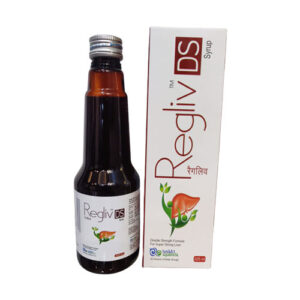Description
Stobye Ayurvedic Syrup – Stobye syrup is a combination medicine of several herbs and ayurvedic components and is primarily used for the treatment of indigestion. The key ingredients of the syrup also help treat several other conditions such as loss of appetite and chronic cholecystitis. Stobye Ayurvedic Syrup works by improving the function of the digestive system. The dose and the duration of the ayurvedic syrup will be advised by your healthcare provider based on the severity of your medical condition. The dosage of the medication may adjust later on as it will also depend on how is your body responding to the medication.
The patient should not stop taking the medication unless advised by the doctor. Take the dosage of the syrup for as long as it is recommended by the doctor as stopping the medication in between your treatment can cause the symptoms of your condition to come back quickly and make your condition worse. This ayurvedic syrup is safe purely safe for consumption purposes and hasn’t shown any side effects whatsoever. However, let your doctor know if you experience any unpleasant after-effects after the consumption of the Stobye Ayurvedic Syrup.
Key Ingredients of Stobye Ayurvedic Syrup
The ayurvedic syrup is consist of various ayurvedic components such as:
- Varun – The herb has diuretic and anti-inflammatory properties. In essence, this herb helps kidney disorders. Since this herb functions as a lithophytic herb, which means it has the power to break up stones, it aids in the removal of kidney stones naturally while preventing procedures.
- Gokhru – The gokhru fruit is a fantastic excretory system cleanser. Kidney stones and difficult urination are both treated by it. In kidney failure, it lessens swelling and edema while increasing urine output.
- Daru Haldi – The component helps in dissolving and expels calculi. It also works by providing relives from spasms & colic associated with calculi.
- Pashanbhed – The herb is advised for the treatment of abdominal tumors, uncomfortable urination, and breaking up calculi. This medicinal herb is effective in treating a wide range of illnesses, although urinary calculi benefit most from its use.
- Palash Phool – The herb is regarded as an analgesic, anti-inflammatory, anti-microbial, anthelmintic, anti-diabetic, diuretic, anti-tumor, and astringent. The astringent, diuretic, and anti-ovulatory qualities of its leaves.
- Punamava – The ingredient is a fantastic ayurvedic medicine that has diuretic effects and also boosts blood flow to the kidneys. It is bitter, astringent, anti-inflammatory, and carminative. It works wonders as a kidney and heart tonic.
- Yavakshar- The herb tackles issues with the abdomen and the urinary system. In addition to acting as a diuretic, this formulation also causes perspiration. Constipation and other urinary diseases are also helped by it.
- Shital Chini – Due to its antitussive and bronchodilator properties, the herb aids in thinning mucus.
- Iksh Mool –The ingredient help reduce thirst, and the burning sensation of the body and also provides instant energy.
- shilajit – Fulvic acid, which is the main ingredient, gives it anti-anxiety, anti-stress, and anti-inflammatory qualities. Numerous conditions affecting the brain, nerves, kidneys, bladder, reproductive organs, and endocrine glands can benefit from shilajit.
- Kulthi – The diuretic and antilithiatic effects of kulthi. It disperses urinary stones from the body by breaking them up into small pieces.
- Sahadevi – The sahadevi plant is used to treat a variety of diseases. The Sahadevi plant is advised for the treatment of intermittent fever, filariasis, blisters, boils, and vaginal discharges according to the Indian Ayurvedic Pharmacopeia.
- Lajjalu – The entire plant is used to treat uterine tumors, dropsy, rheumatoid arthritis, vesical calculi, and myodynia.
Stobye Ayurvedic Syrup Uses
- Treatment of ingestion.
- Stobye Ayurvedic Syrup is also effective in treating problems associated with the digestive system.
- It also helps treat several other conditions such as loss of appetite and chronic cholecystitis.







